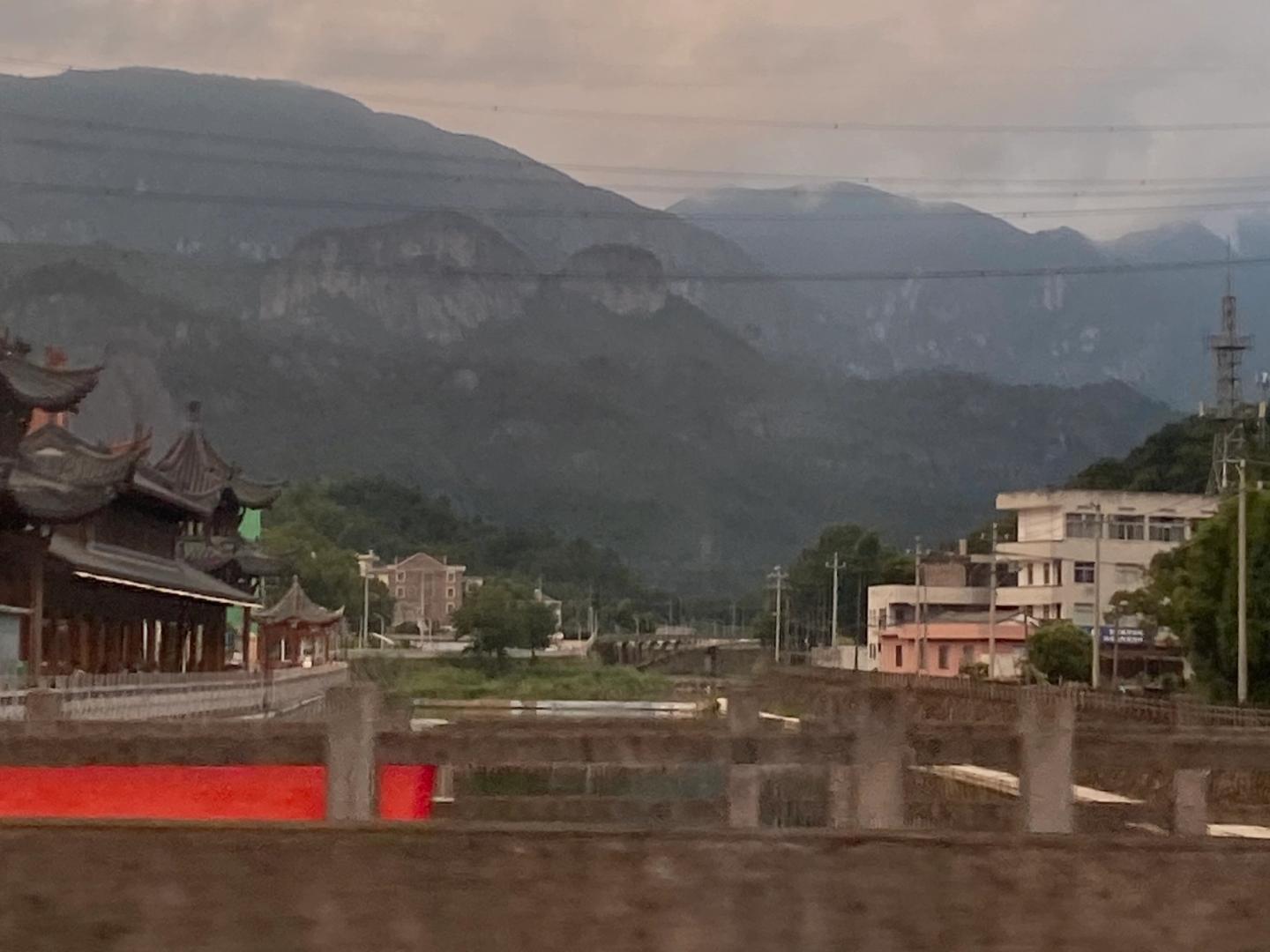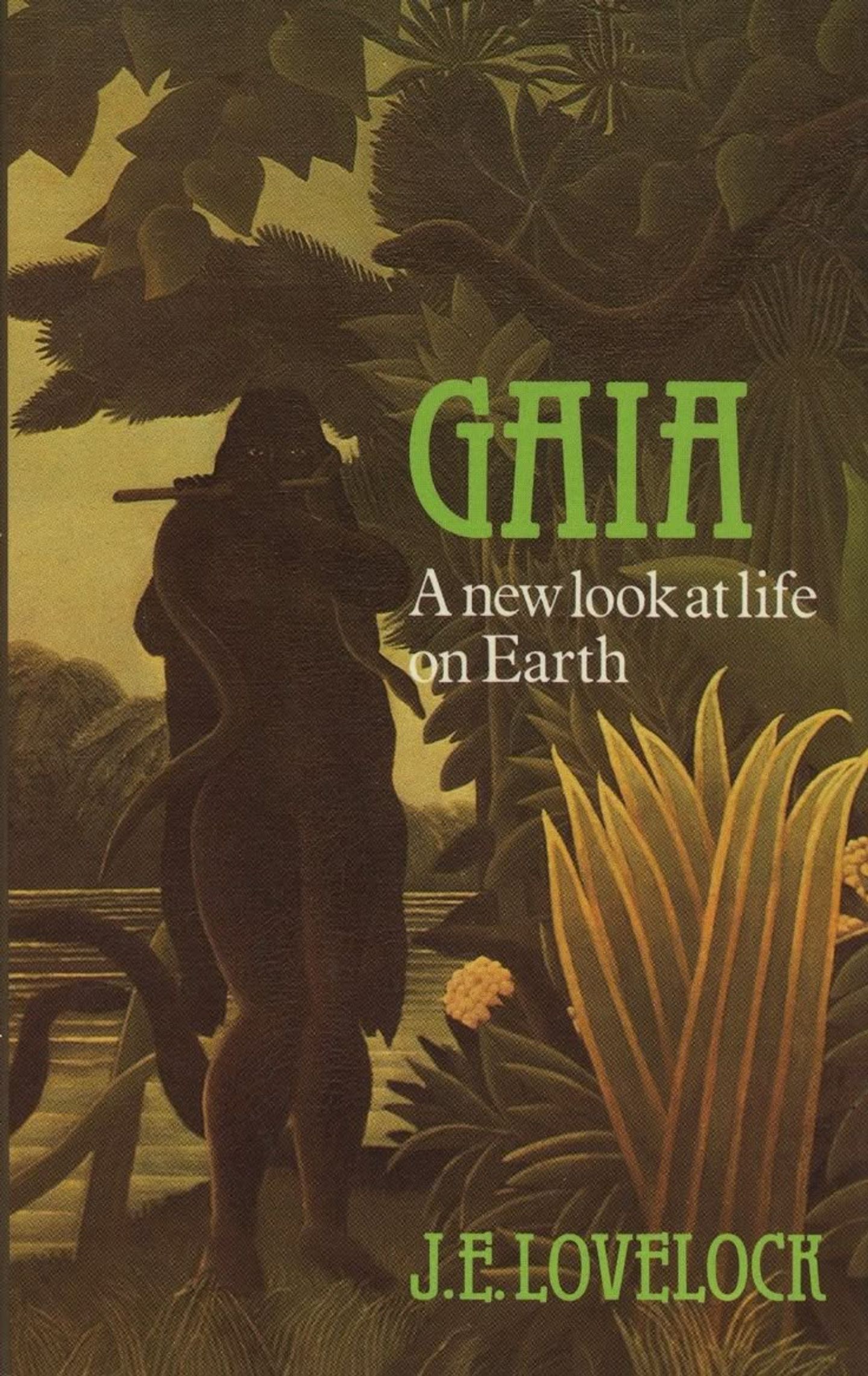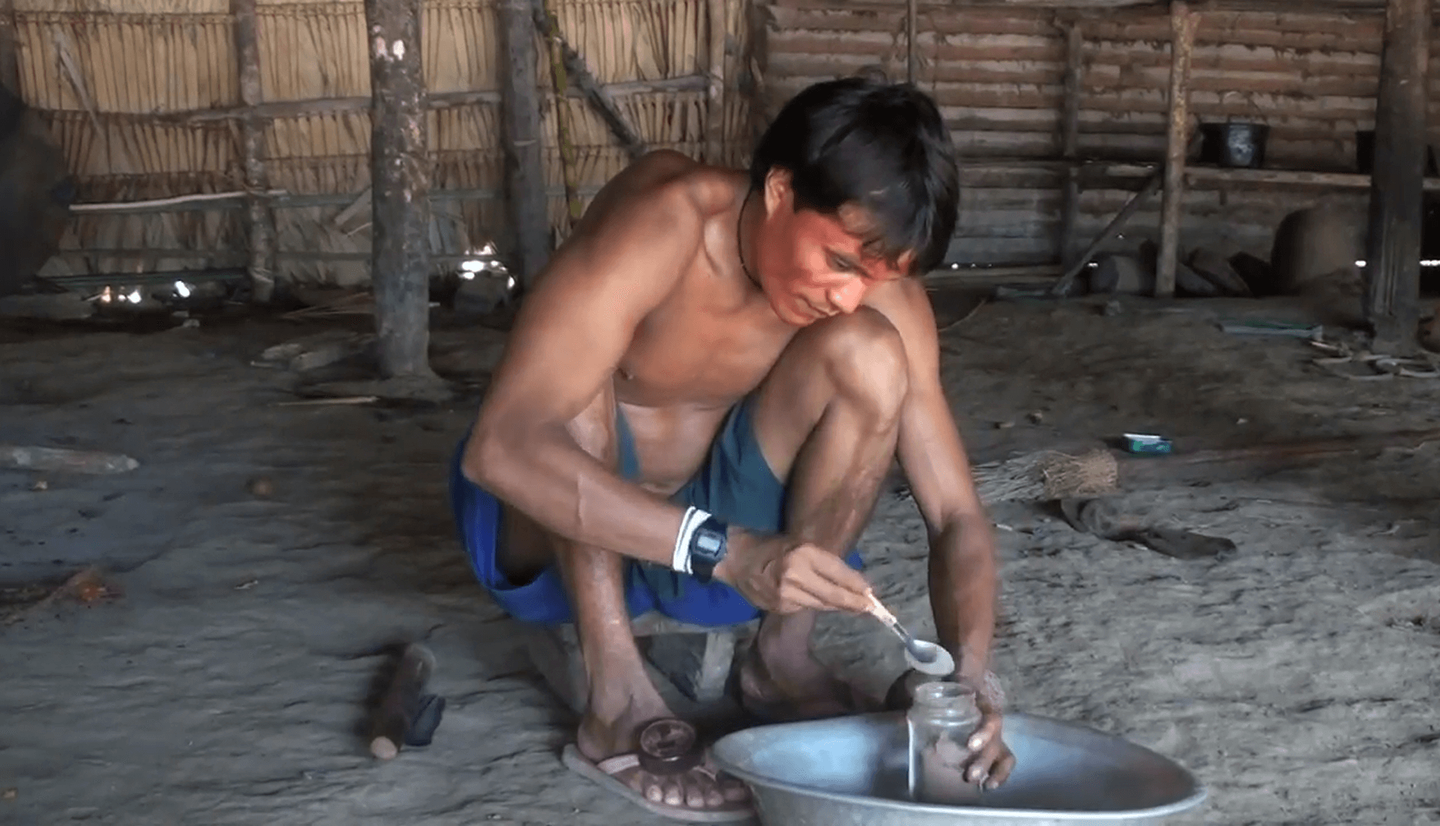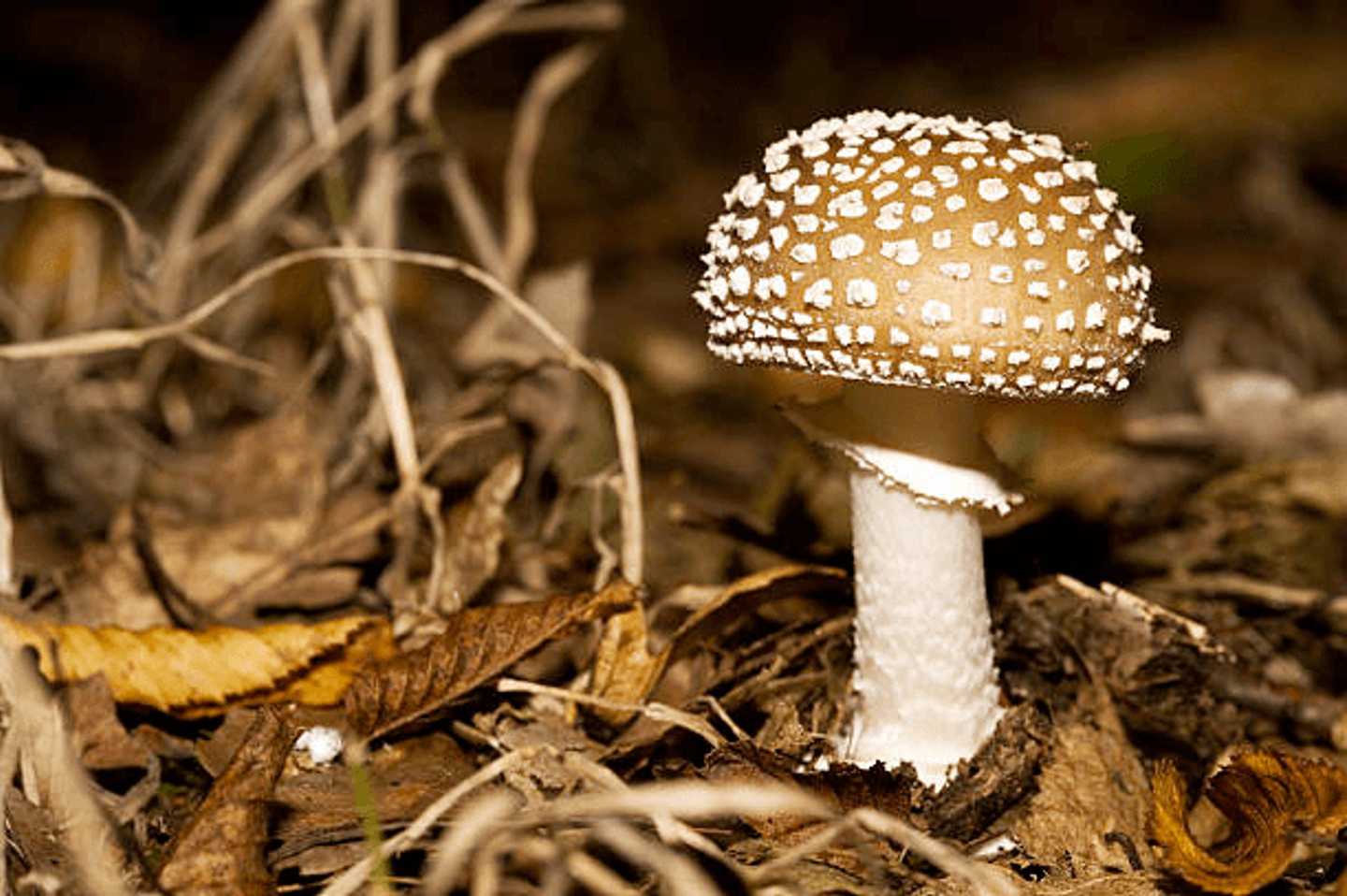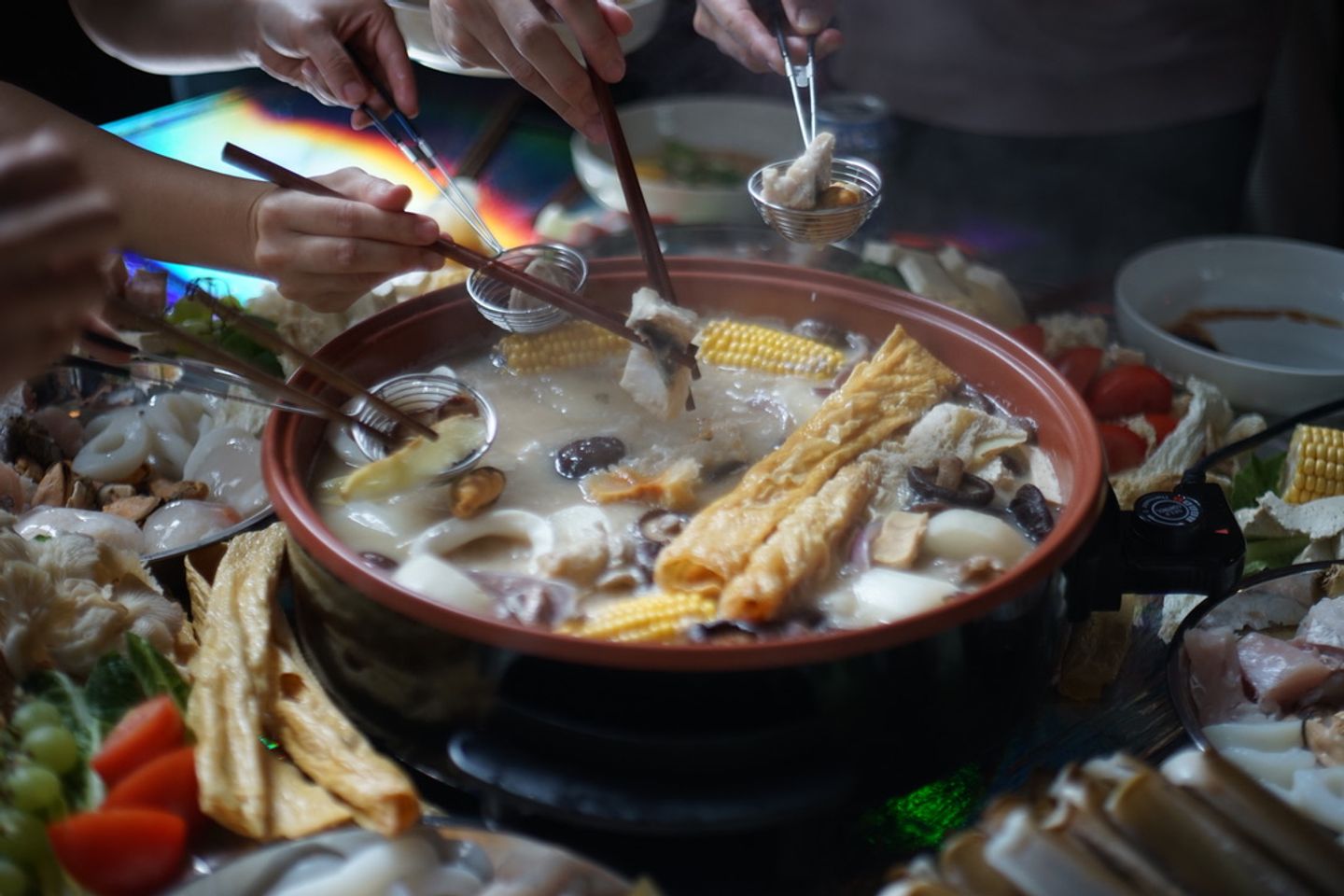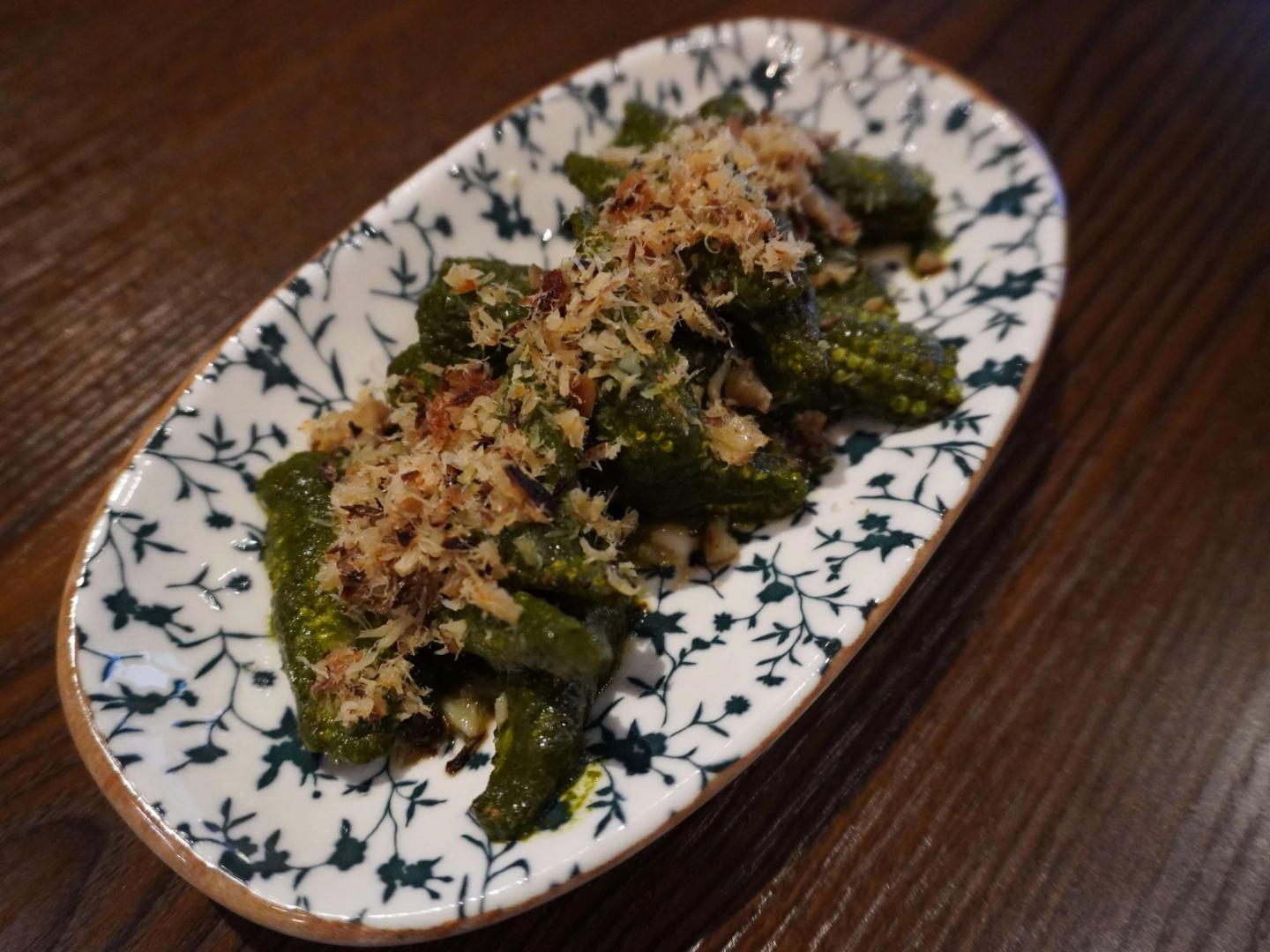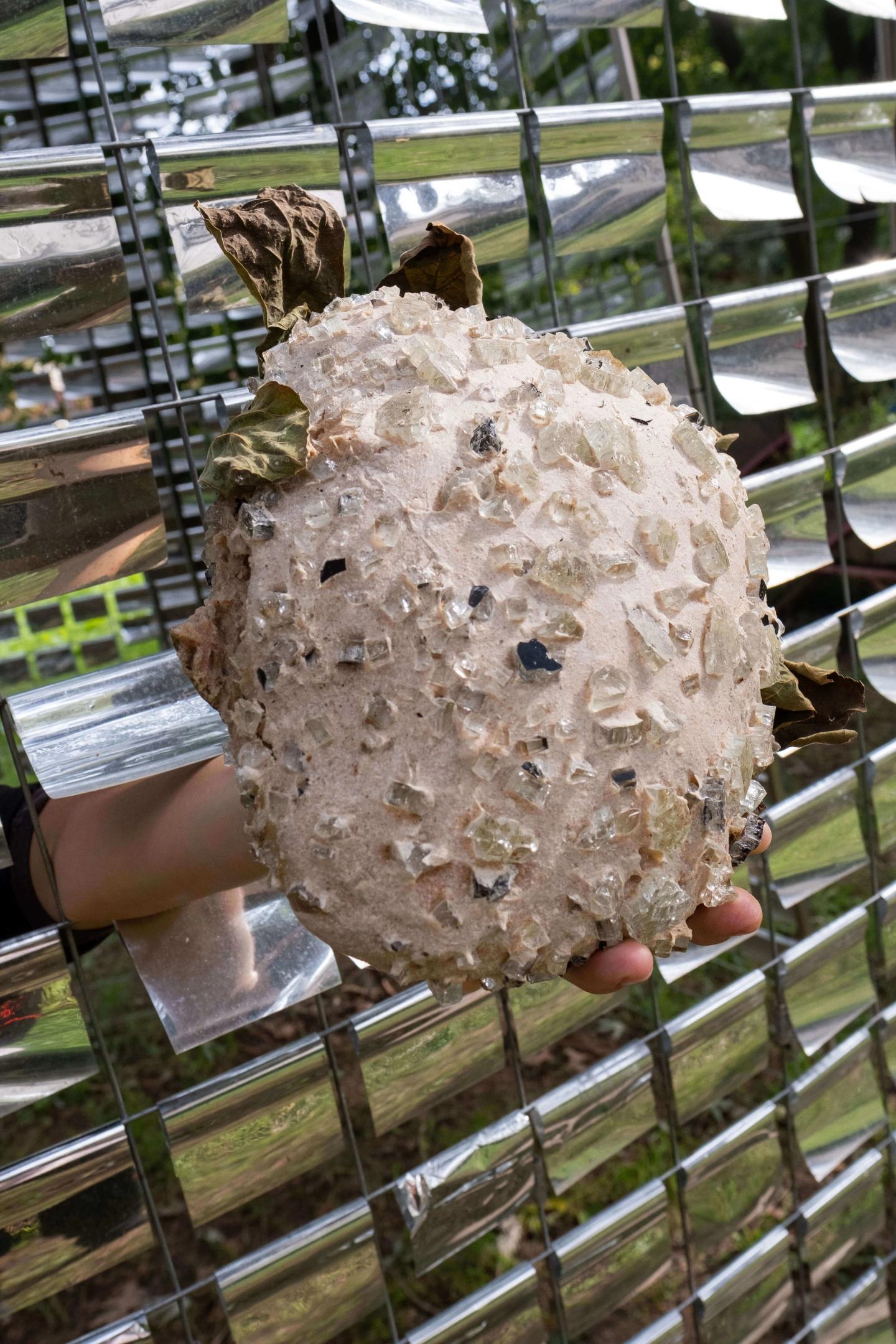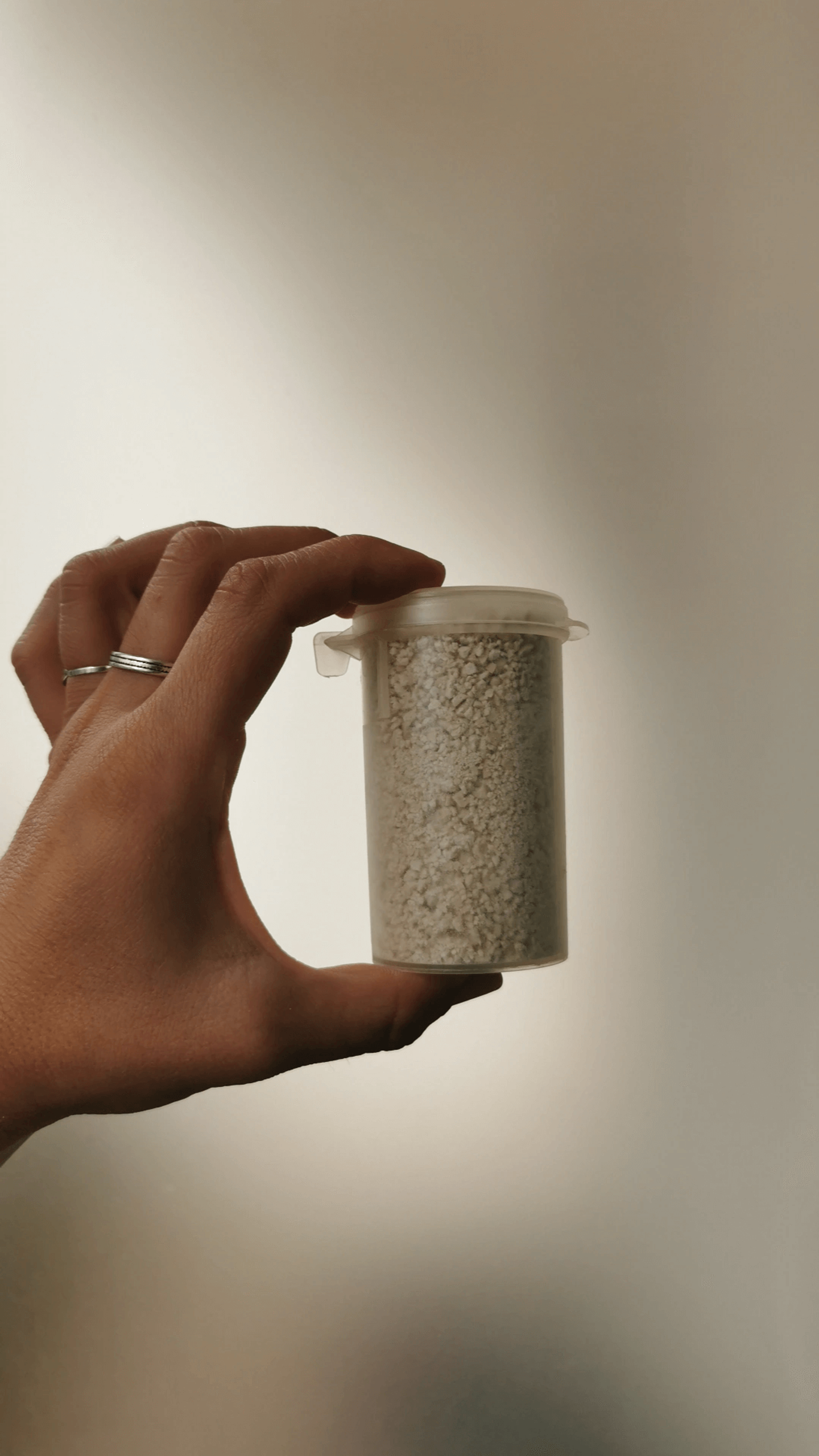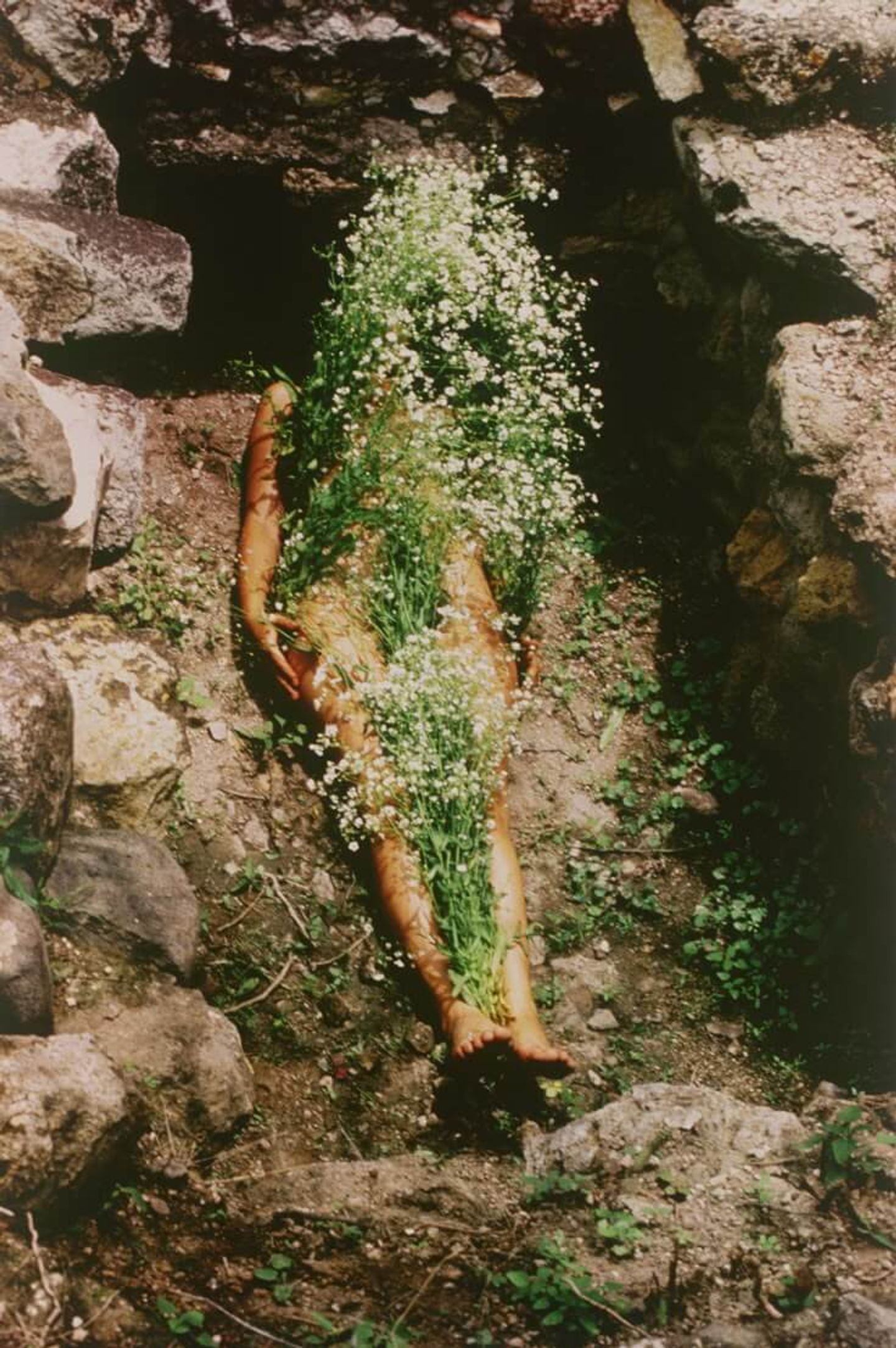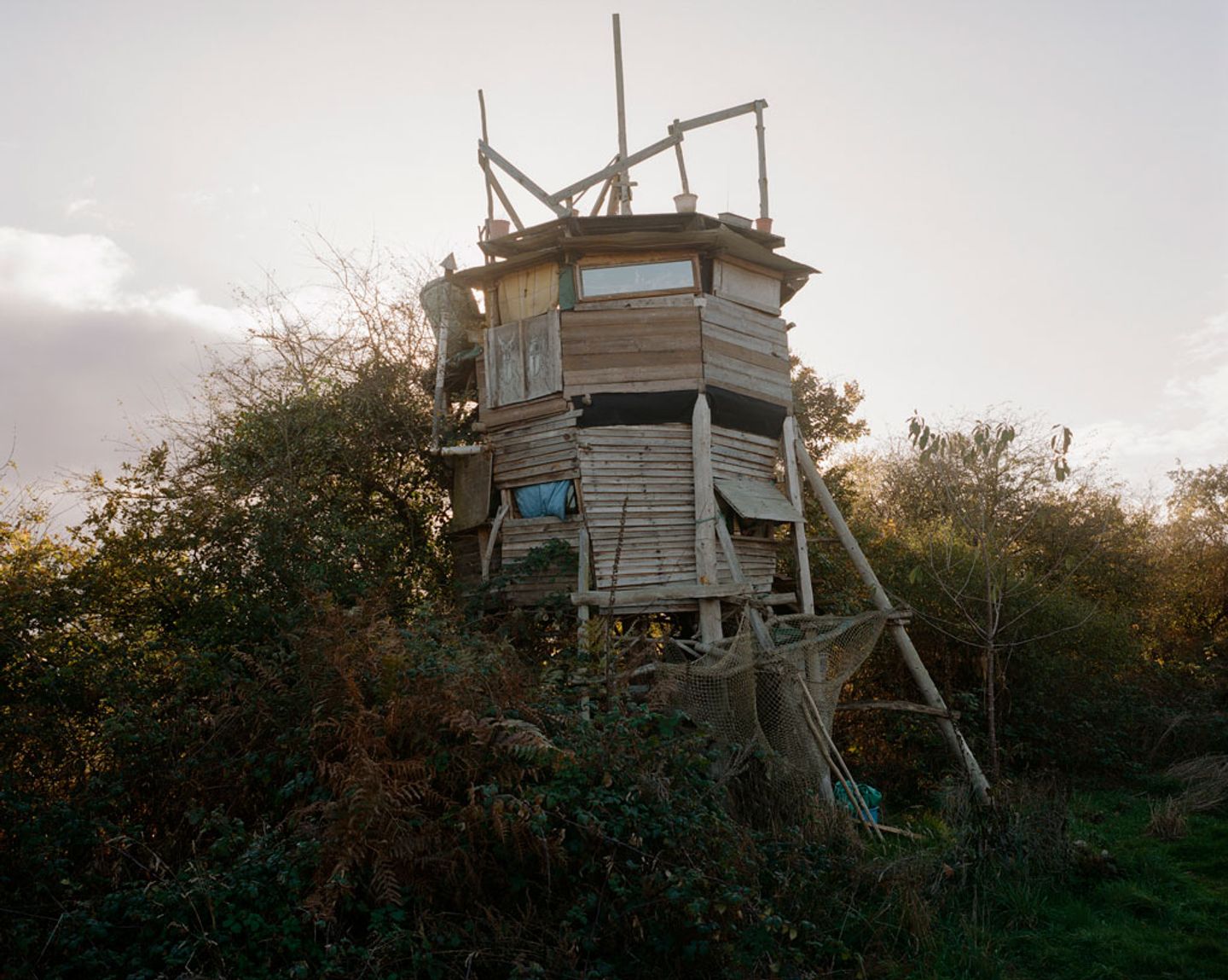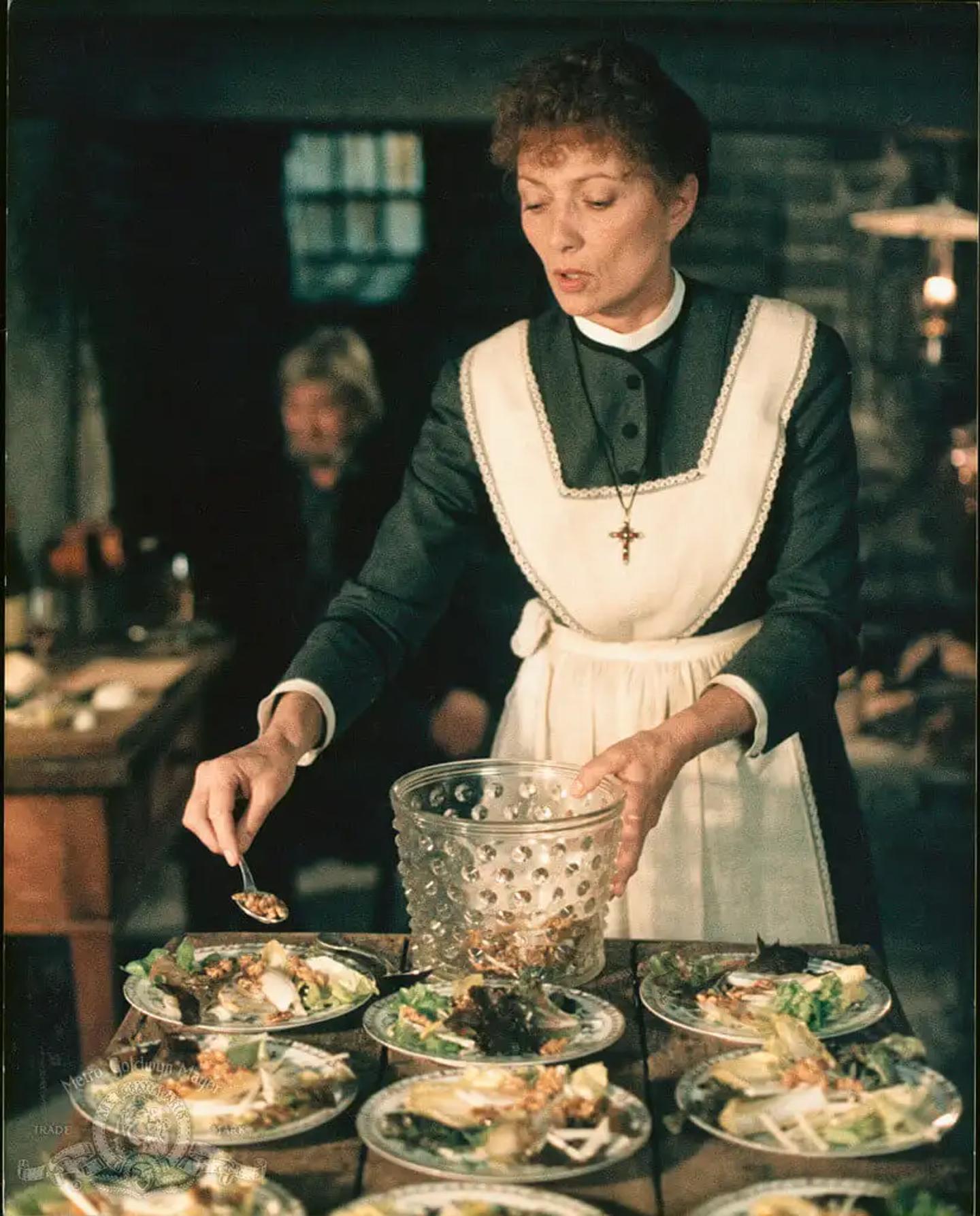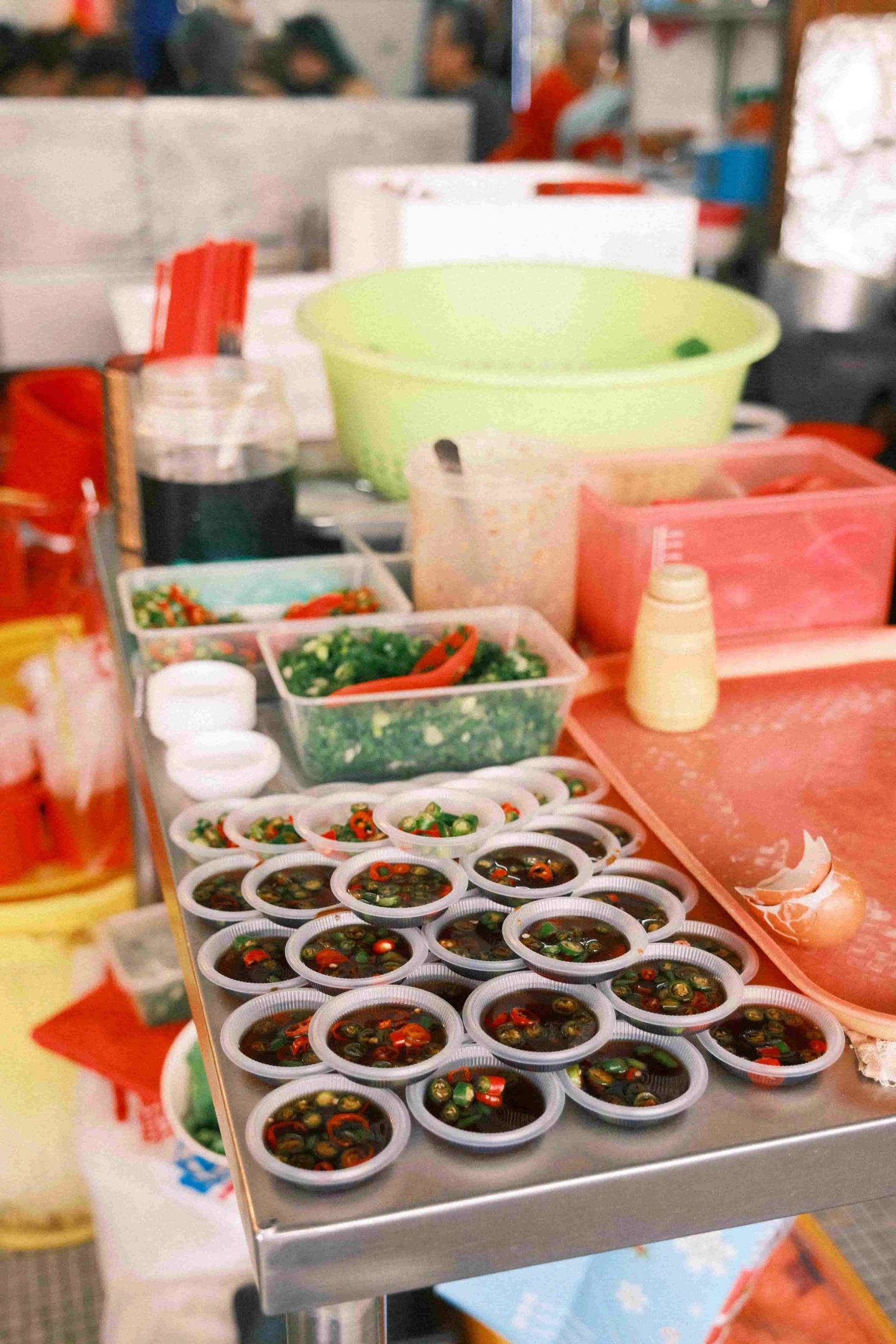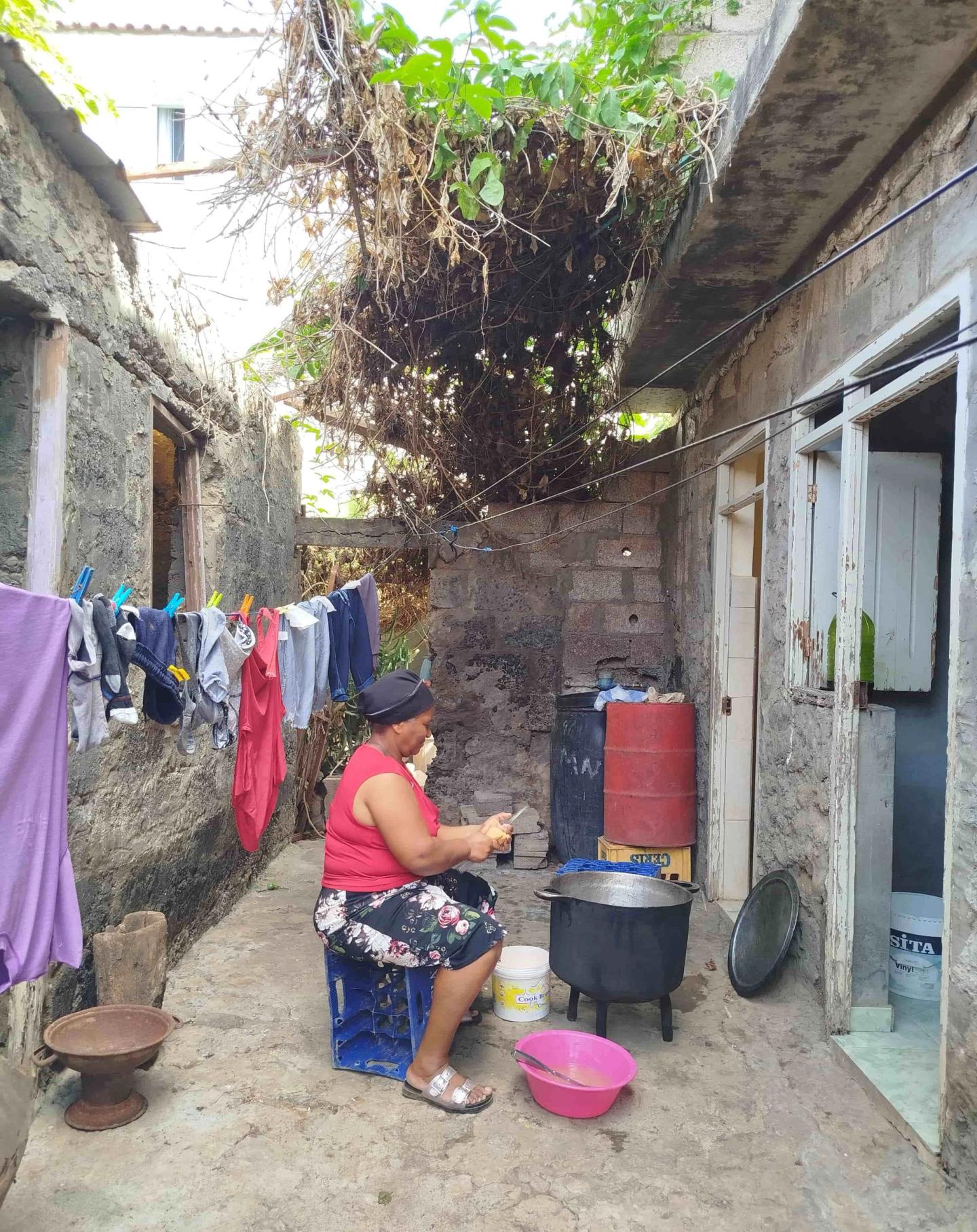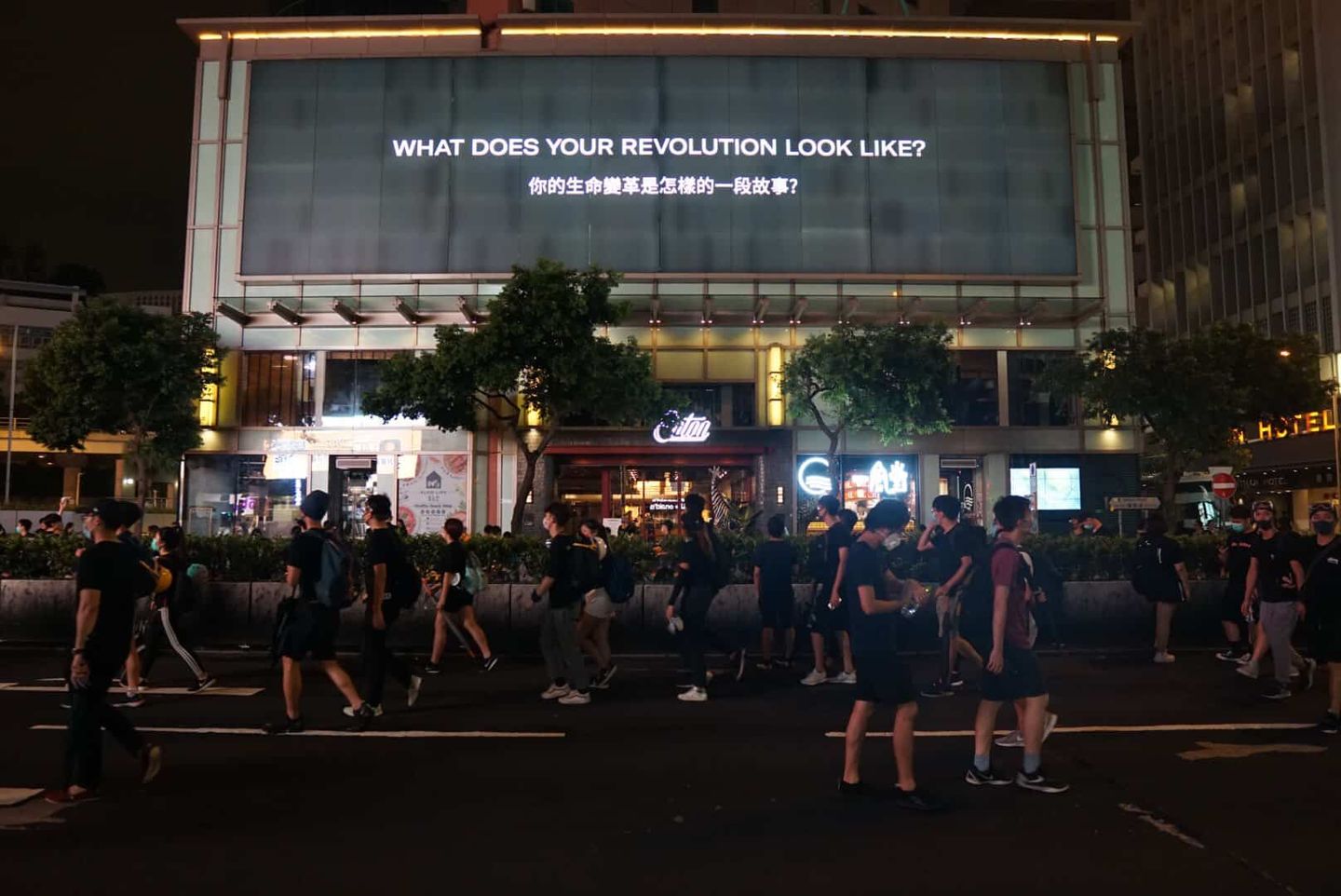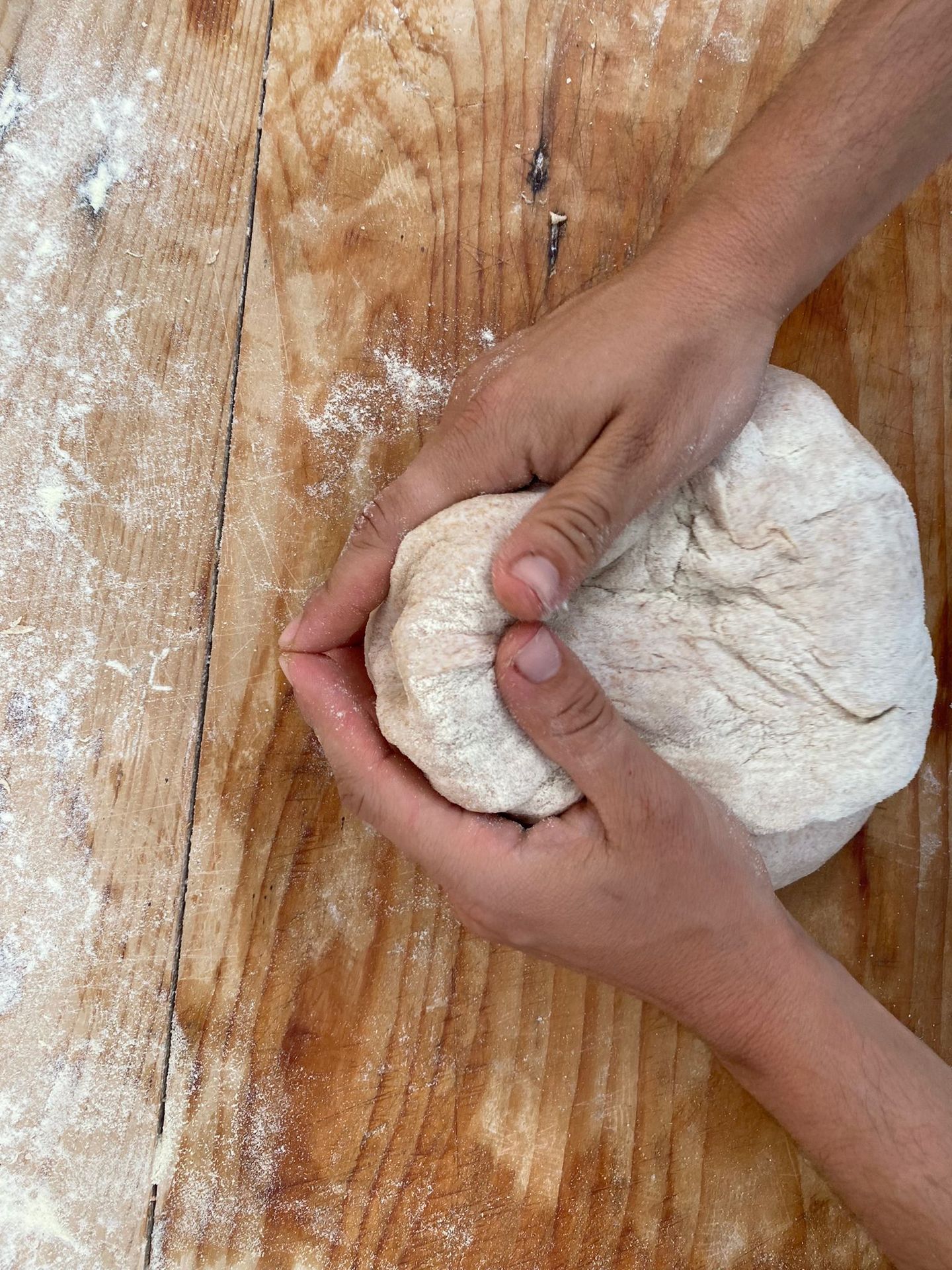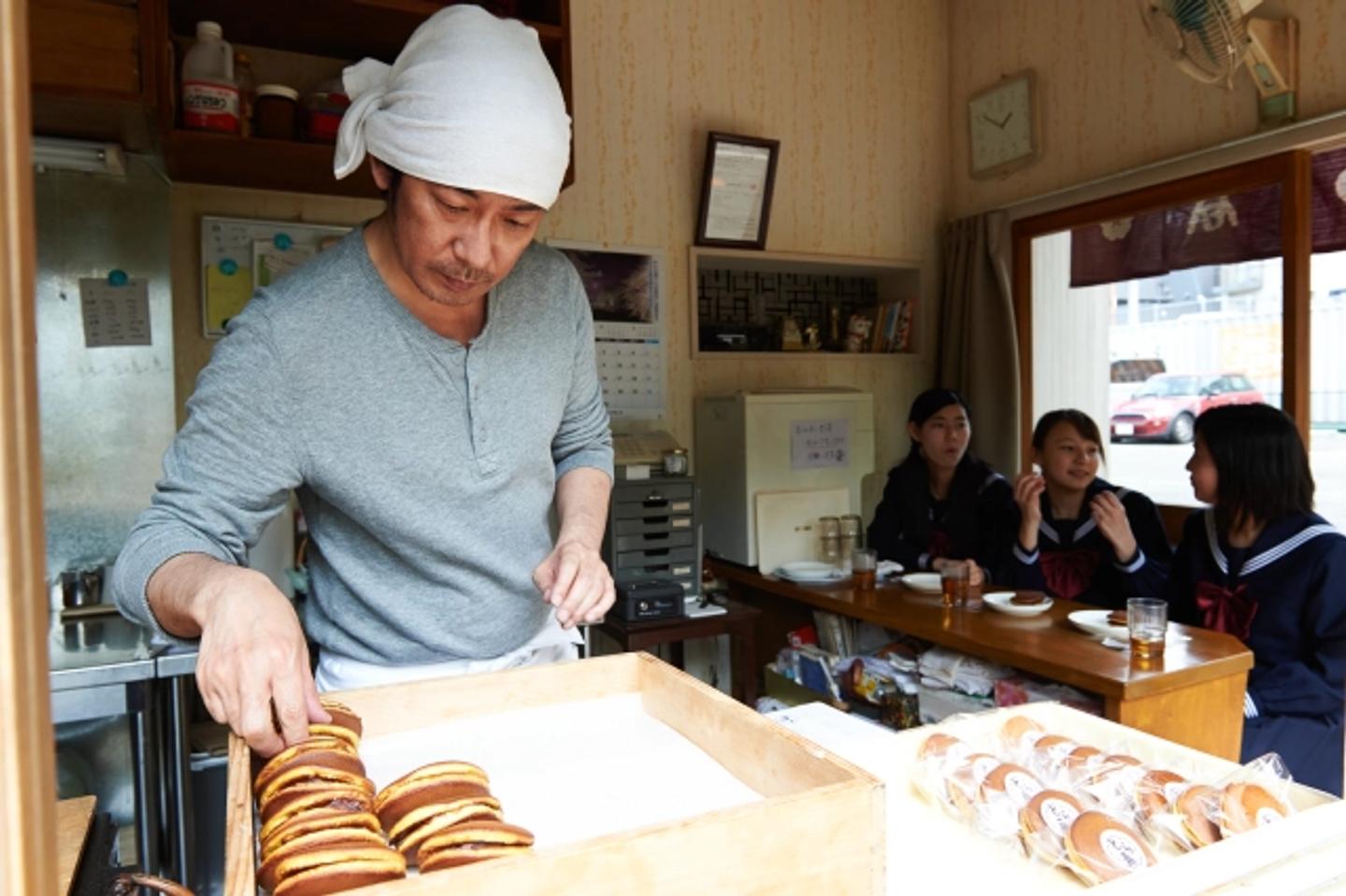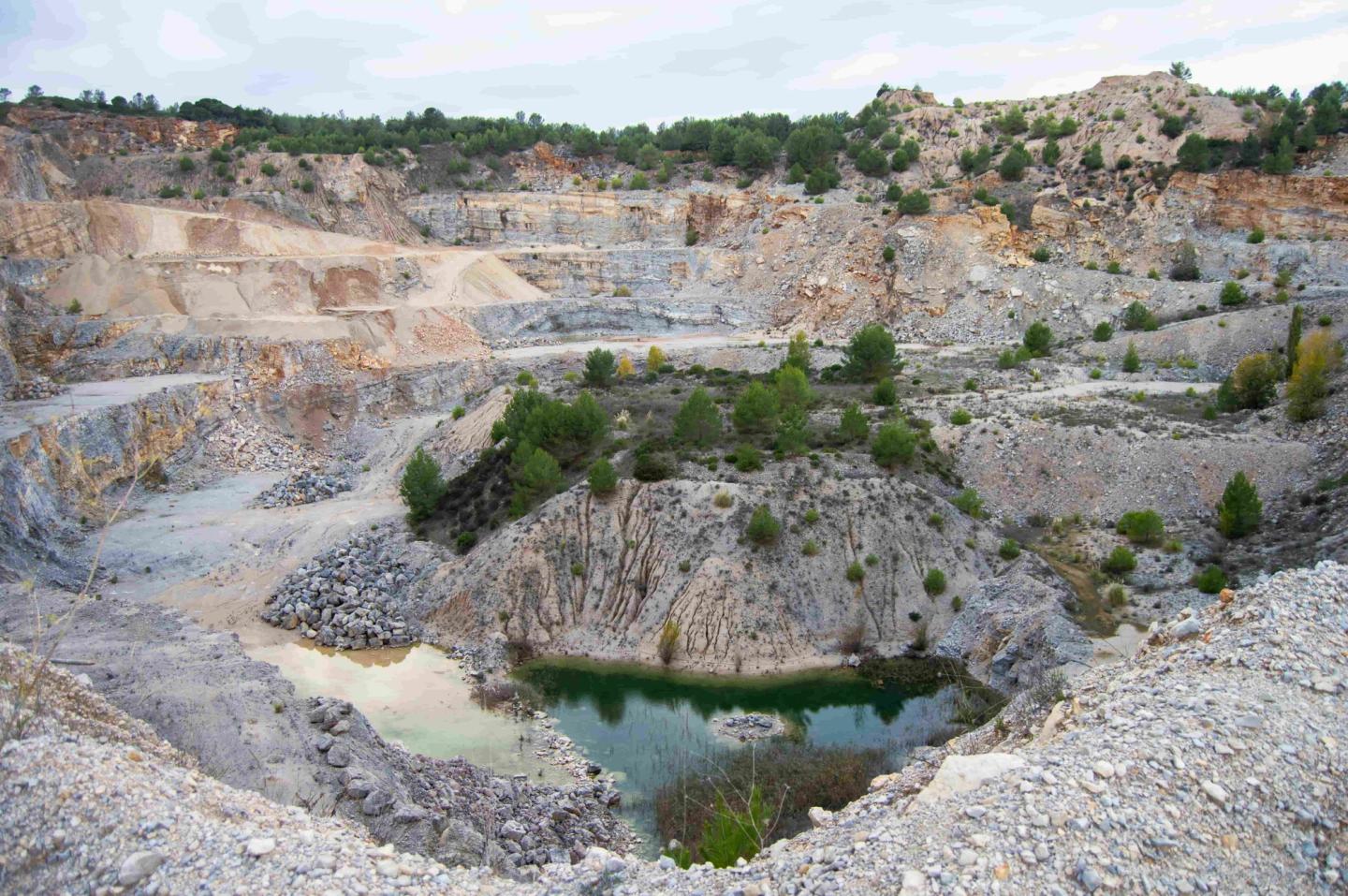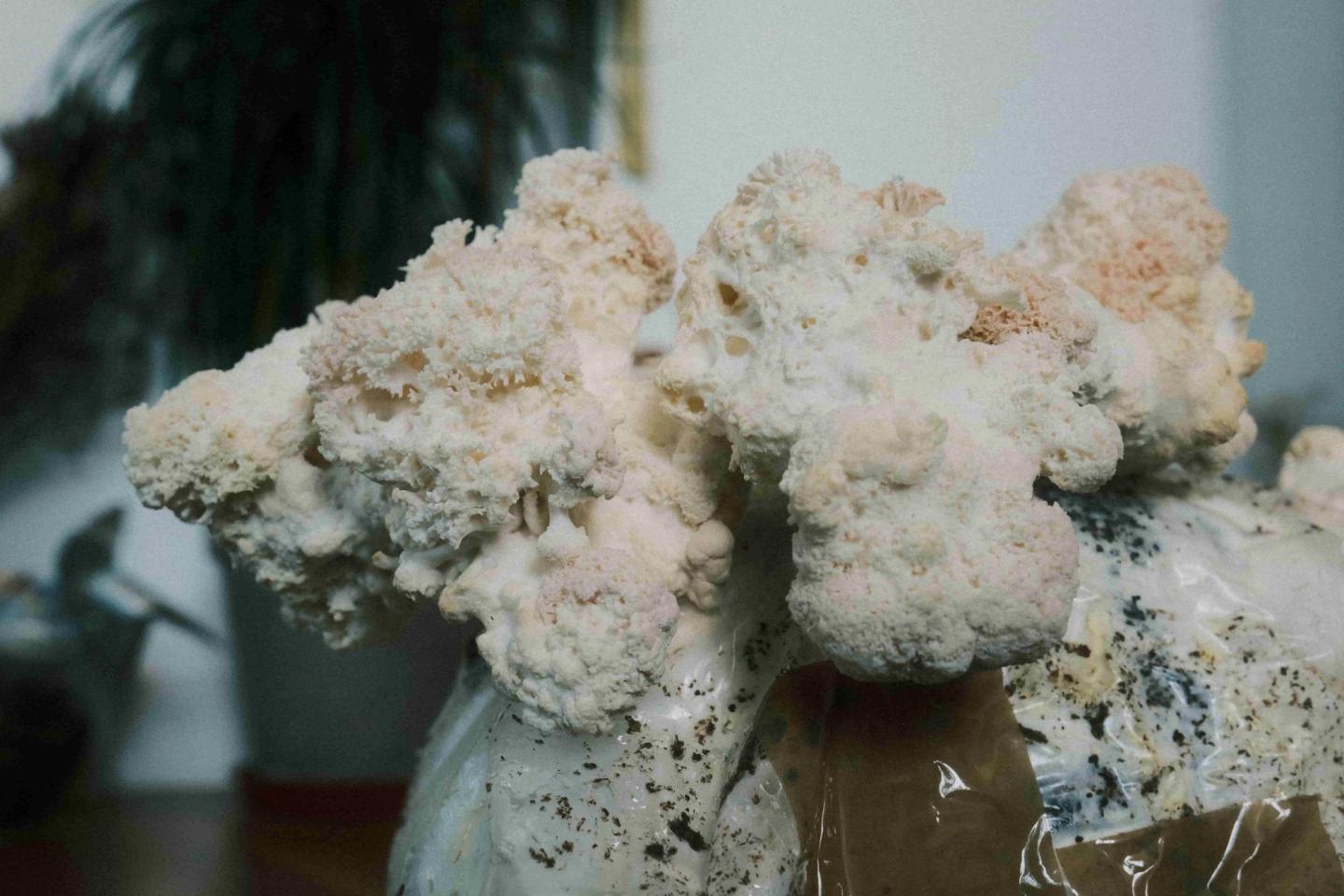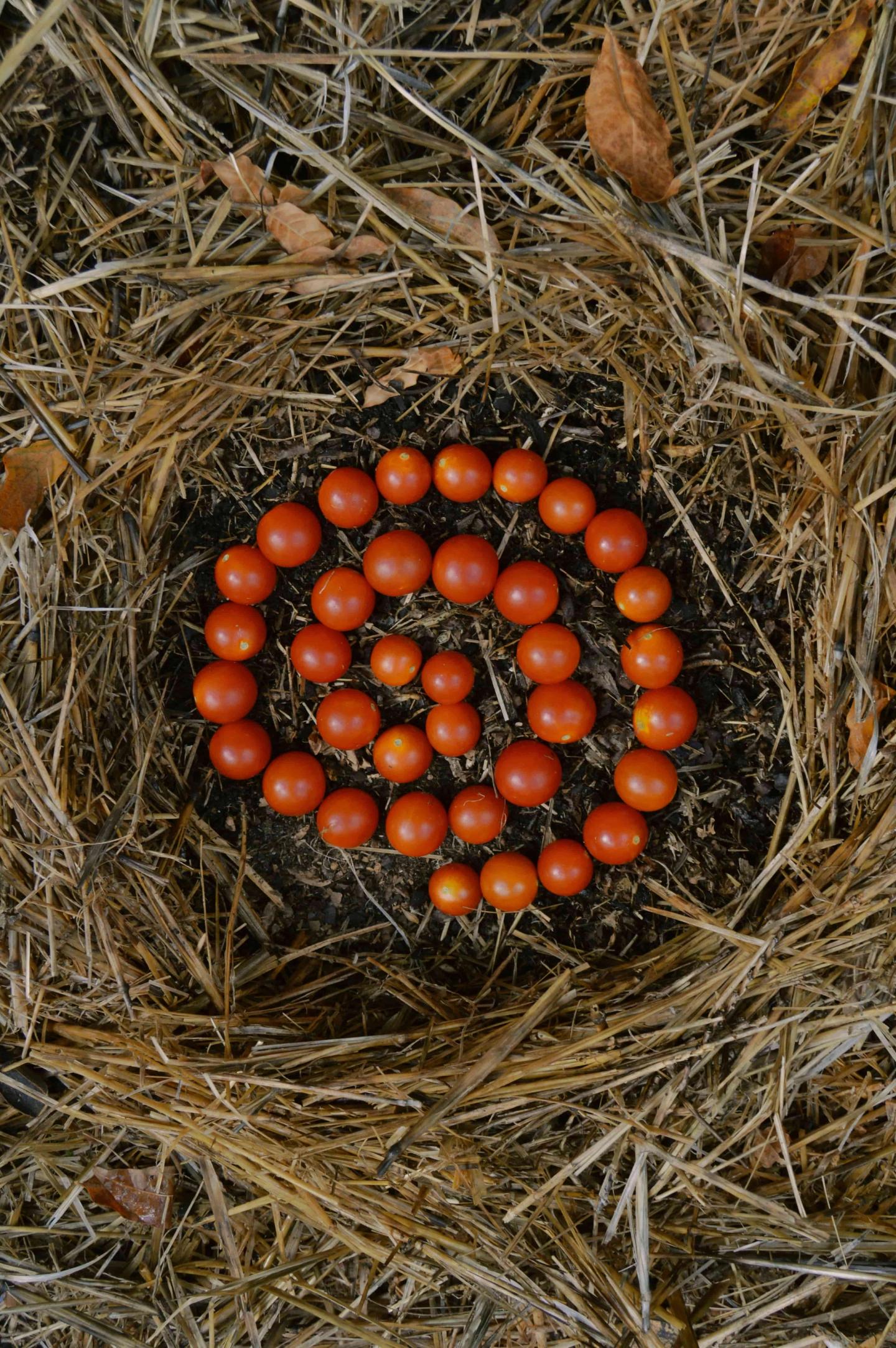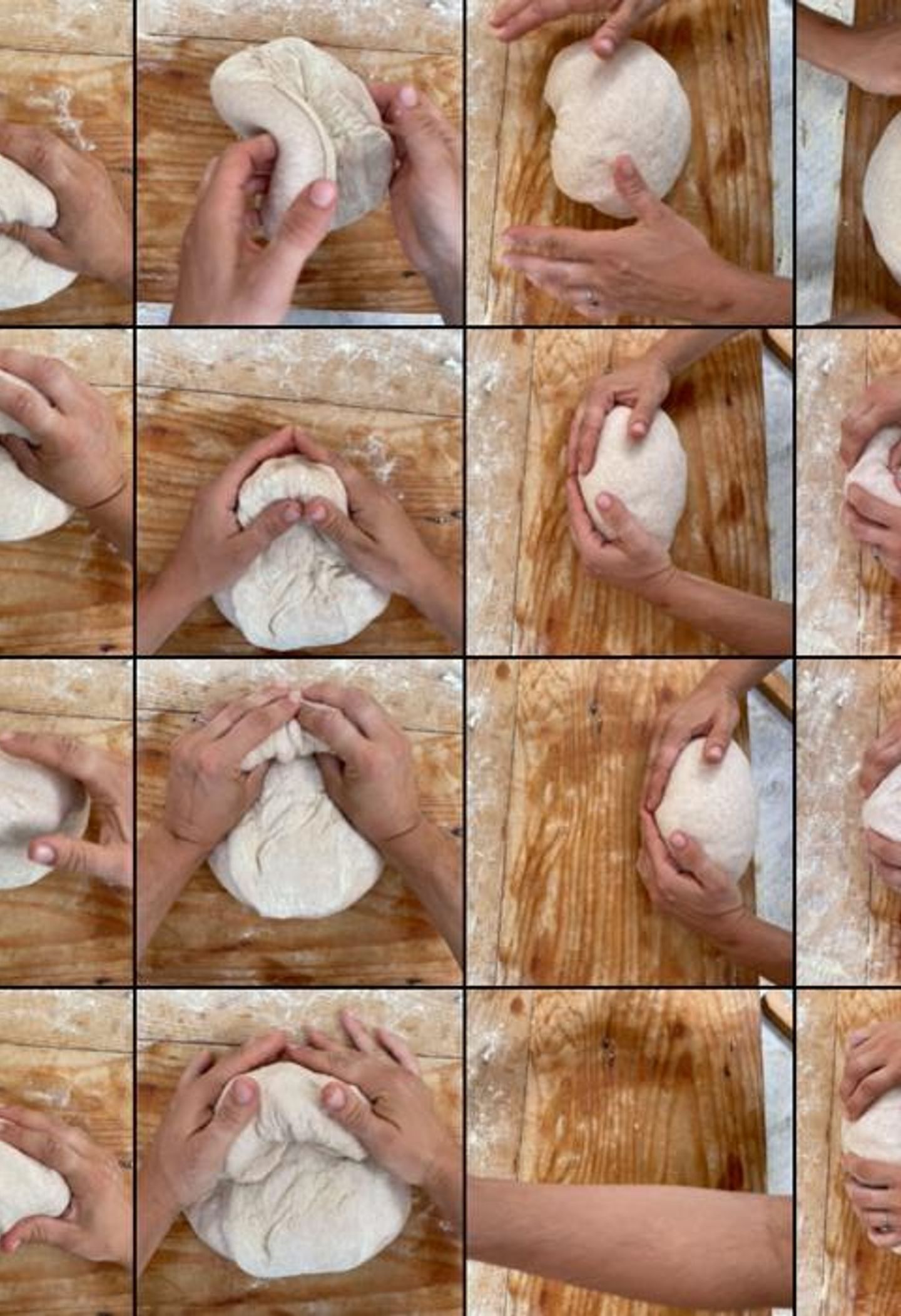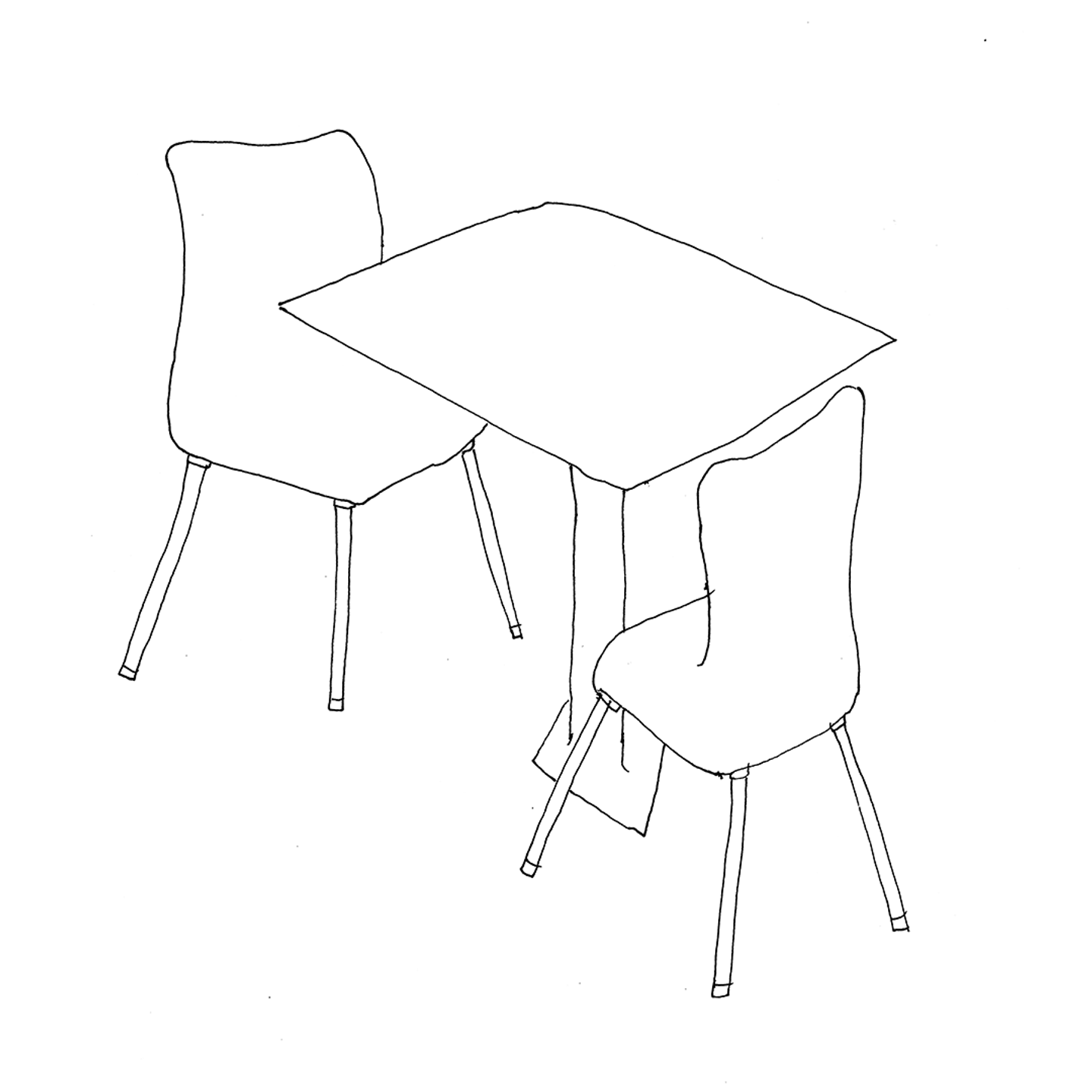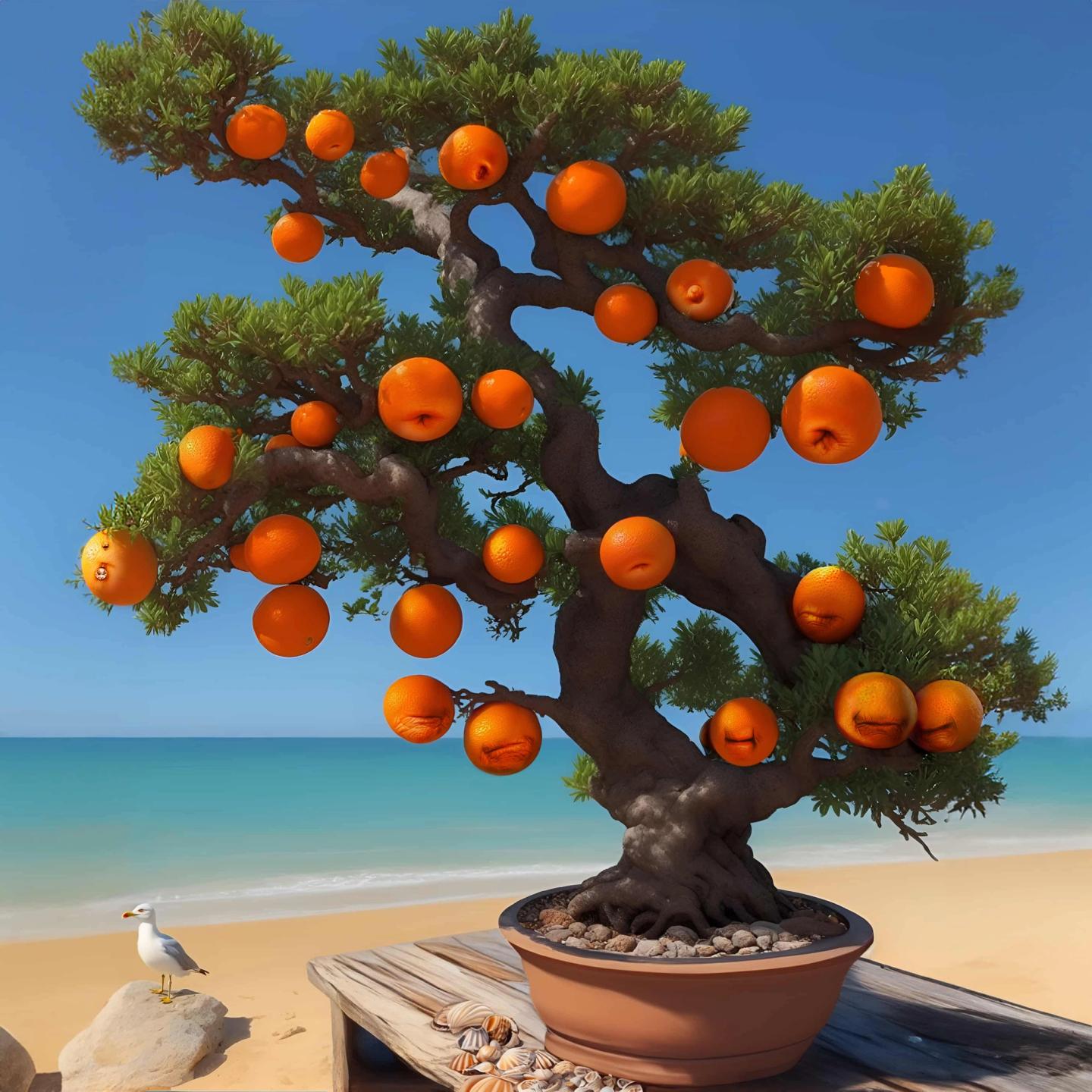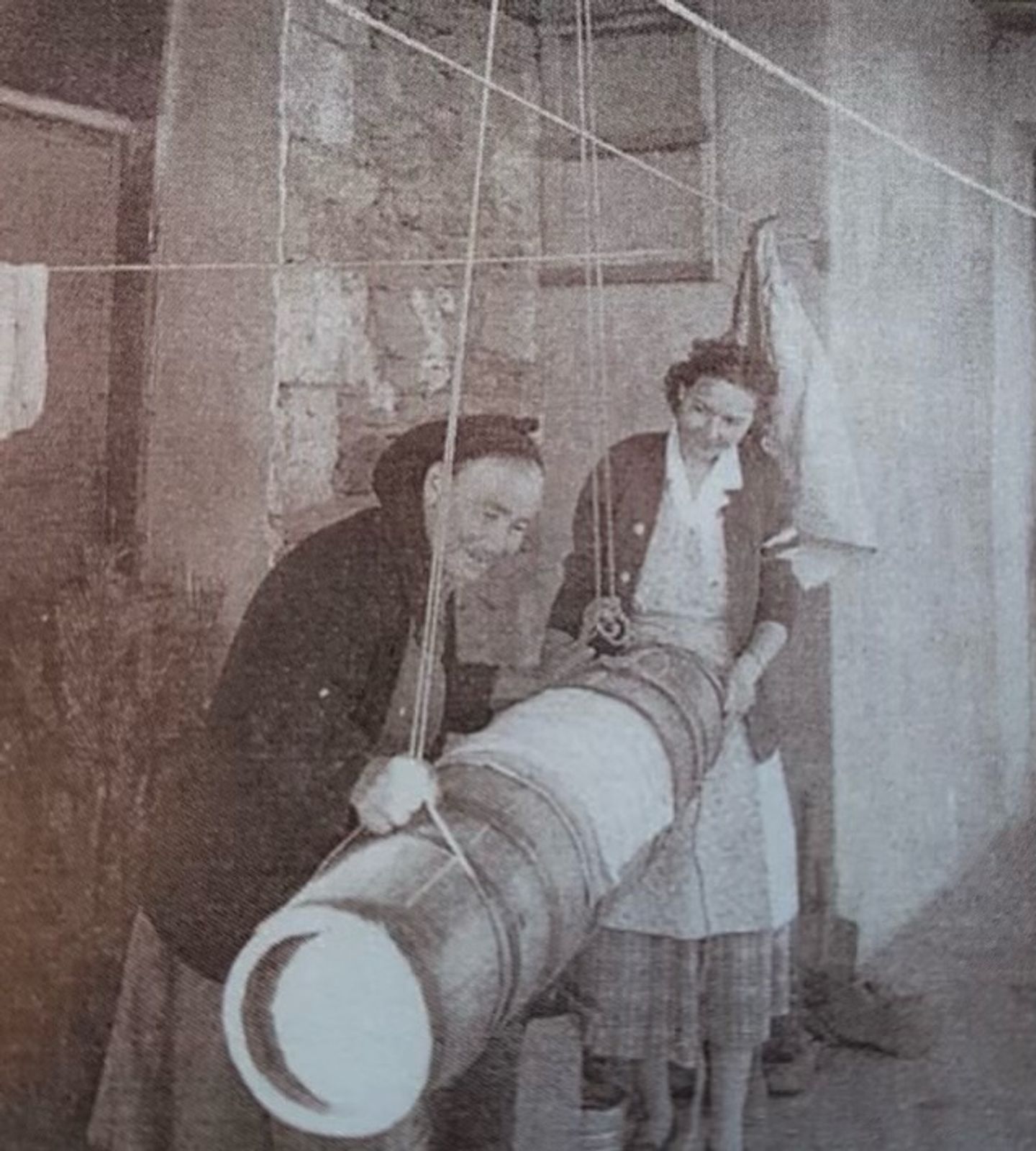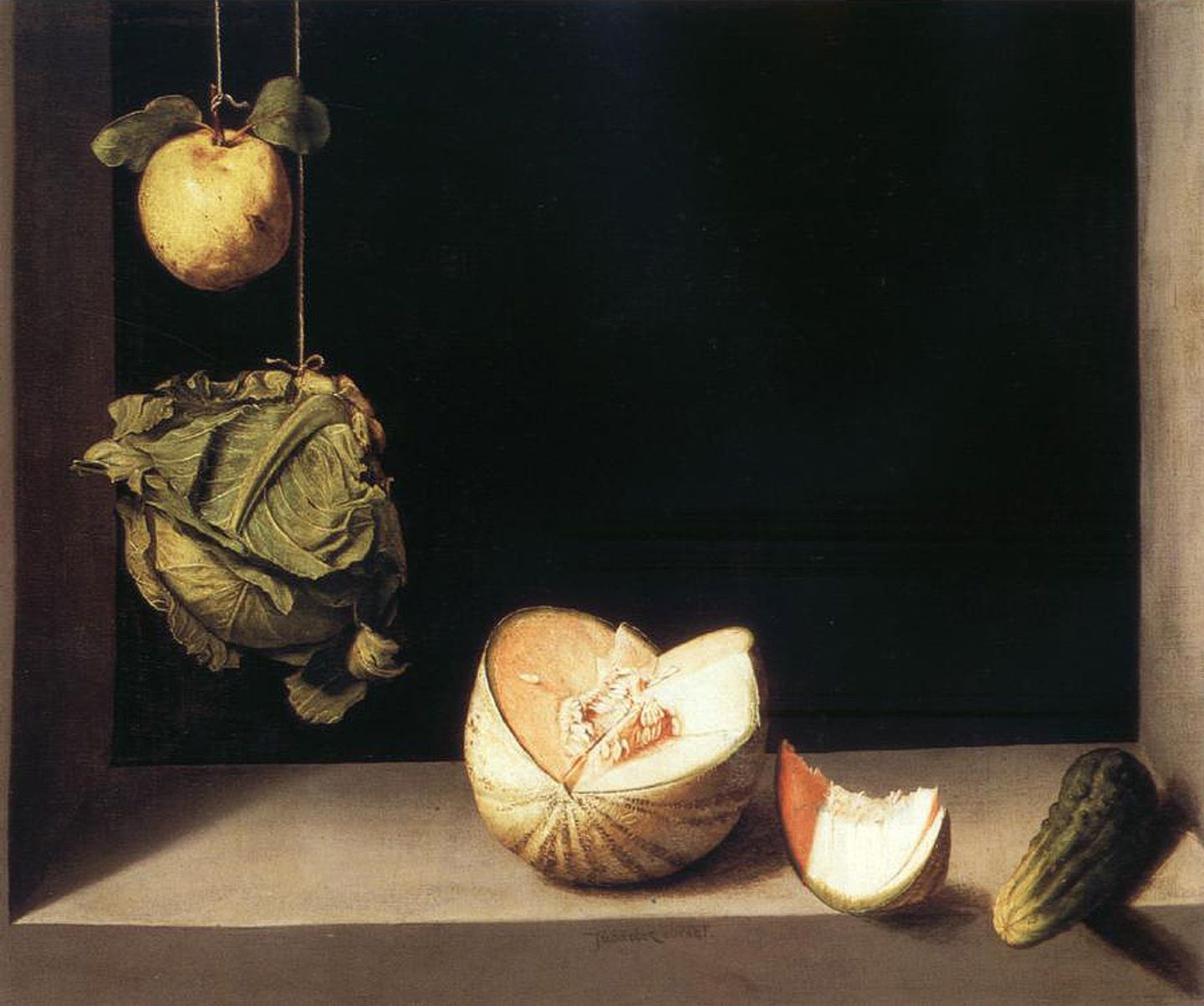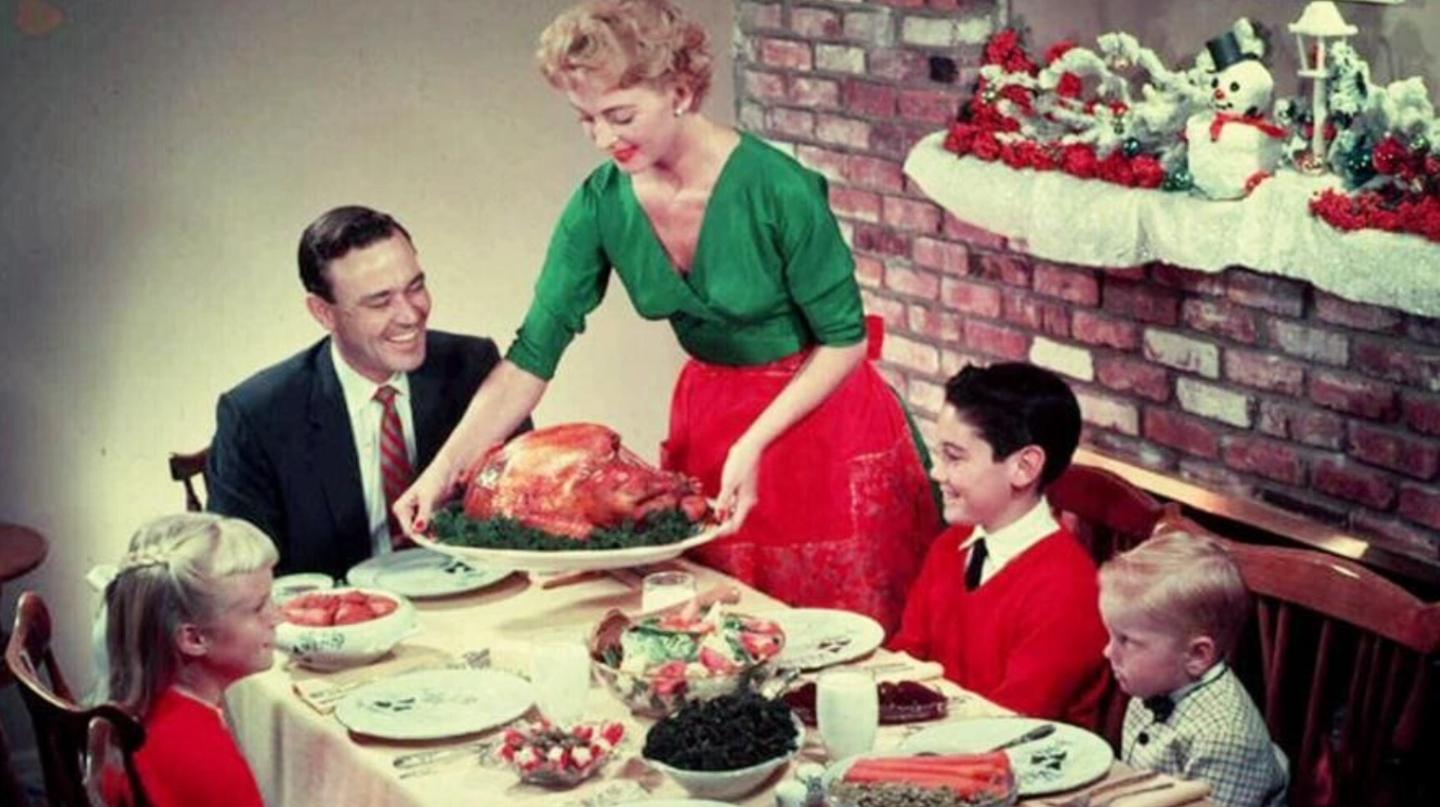-

Curious Foods from Home, Part 2: The Chinese Olive 14.01.2026
Bitter and astringent, yet somehow sweet? In this second instalment of 'Curious Foods from Home', Ziyi Lian explores the so-called 'Chinese olive' through both its taste and the tales told of it.
-

Curious Foods from Home, Part 1: The Sugar Pear 26.11.2025
In this longer read, Ziyi tries 'Tang Li', or 'sugar pear', a once widespread delicacy with an surprising flavour. Through its taste, she explores her grandmother connection to the fruit, it's local history, and what she knows of its provenance.
-

Welcome, come on in, pull up a chair, and tuck in 14.11.2025
Curatorial duo Every Mouth Needs Filling speak to what the notion of 'queer food' means to them, and how others can open up their minds to its thinking, context, and ideas. This text was originally published in The Gramounce's Queer Food residency handbook 2025.
-

To Market 22.10.2025
Ziyi Lian recounts an early morning trip to the local food market with her father, and the memories this brings up of family life and connection. Driving down the country lanes of southern Zhejiang province, Ziyi reflects on her father's impulse purchasing, and how food plays a role in this.
-

Book review: Gaia: A New Look at Life on Earth 04.08.2025
João Pedro Soares reviews 'Gaia: a new look at life on Earth', a book presenting the revolutionary idea that Earth functions as a self-regulating, interconnected system, shifting our understanding from a human-centered worldview to one where humans are part of a larger ecological whole.
-

Food From Dad And Stirring Clouds From My Hands 28.07.2025
This multi-generational essay traces the emotional complexities of a Chinese father-son relationship shaped by food, love, and unspoken expectations, interweaving themes of cultural identity, queerness, and memory.
-

The magic of food: Yãkoana 22.07.2025
Notes on Jove Spucchi: reflecting on the deep spiritual and ritualistic role of food in the Yanomami community, particularly through the sacred preparation and use of yãkoana, a hallucinogenic plant consumed by shamans to communicate with forest spirits. Drawing connections between food and magic, João Pedro Soares highlights how yãkoana acts as a bridge between humans and the more-than-human world, exemplifying how nourishment can transcend the physical and foster ecological and ancestral harmony.
-

"We are mushrooms having a human experience” 21.06.2025
João Pedro Soares reflects on Darren Le Baron’s lecture, looking into how African spiritual traditions and psychedelic fungi—particularly Amanita pantherina—offer profound insights into human consciousness, showing that our deep-rooted connection to nature and the more-than-human world can transform how we understand ourselves and our place on Earth.
-

Life is bearable as long as we dream about the next dinner party 17.06.2025
Contributor Windmovesmountains mourns the loss of space for proper dinner parties at their London home—until they discovered that connection, not seating, defines true hospitality. Through shared hot pots, creative cooking, and joyful gatherings, their home transformed into a warm, ever-adaptable space for community and celebration.
-

Reimagining Sustainable Eating in Singapore 29.05.2025
In a city with no seasons and heavy reliance on imported food, Singaporean chef Kuah Kai Wen redefines sustainability by creatively spotlighting Southeast Asian ingredients through modern, globally-informed techniques. His approach not only challenges cultural biases about local produce but also transforms the dining table into a space for reimagining climate-conscious, resilient food futures.
-

CONTAINER RAPSODY/Alchemical Kitchen II: Crystal-Bread 27.05.2025
Denise di Summa continues her reflection on CONTAINER RAPSODY/Alchemical Kitchen, an artistic residency in Milan in which she participated, hosted and curated by terzo paesaggio and The Gramounce in October 2024.
-

CONTAINER RAPSODY/Alchemical Kitchen I: Activating Matter 20.05.2025
In this article, Denise di Summa reflects on CONTAINER RAPSODY/Alchemical Kitchen, an artistic residency in Milan in which she participated, hosted and curated by terzo paesaggio and The Gramounce in October 2024.
-

Emancipatory Knowledge 05.05.2025
João Pedro Soares reflects back on the lecture of Luïza Luz, as part of this year's Alternative M.A.
-

Book review: We Are Nature Defending Itself 02.04.2025
This article arises from my engagement with the book/manifesto We Are Nature Defending Itself (2021) by Isabelle Fremeaux and Jay Jordan. The book encapsulates their experiences as researchers, artists and activists, centring on the legendary resistance movement opposing the construction of an airport in Notre-Dame-des-Landes. Between them, Fremeaux and Jordan craft a compelling account which highlights the power of collective action, environmental activism, and the almost surreal unity of how a popular movement challenged extractivism.
-

Film Review: Babette’s Feast 03.02.2025
João Pedro Soares reviews one of The Gramounce’s favourite films, Babette’s Feast.
-

Both Kuala Lumpur and you are to fall for 27.01.2025
Windmovesmountain continues their reflections on food and memory, this time in between bowls of hot, sour, spice soups in Malaysia - can home can be found in places we’ve never been before?
-

Cachupa Diary 20.01.2025
João Pedro Soares looks back on his trip to Cape Verde, a country shaped by intense heat and limited water resources, with a landscape offering the chance to immerse oneself in a truly unique food culture. In this piece, he takes us through the meticulous but swift cooking of a delicious local dish, Cachupa, cooked by Zinha.
-

It smelt like this 12.01.2025
Contributor Windmovesmountain reflects on the memory-inducing properties of scent, as well on the identity politics this sense may carry.
-

Accepting Imperfection: The Art of Bread Watching 06.01.2025
Contributor Denise di Summa continues her series Promiscuity of Matter, further reflecting on the anthropology, history, politics and poetry of making bread.
-

Film review: Sweet Bean 16.12.2024
João Pedro Soares reviews the film Sweet Bean, by Naomi Kawase.
-

How to eat soil 19.11.2024
Contributor João Pedro Soares reflects on recent guest lecturer Dr. masharu’s talk on Edible Soil, considering the various properties, flavours and health benefits - going on a self-led soil tasting experience himself! Through it, João Pedro reflects on this practice and its wider possibilities for our connection to the Earth.
-

When Culture Becomes Digestible 11.11.2024
Windmovesmountain reflects on the mushroom eating practices in their Asian upbringing, their commodification and capitalisation in the western world - and their search for meaning and identity through their art practice.
-

Food as ‘Becoming’ 04.11.2024
João Pedro Soares reflects on Michael Marder’s lecture for our Food & Art Alternative MA 24/25 and considers the role of food in the connections between nature and culture.
-

Promiscuity with Matter: The Postures of Bread-Making 28.10.2024
The first in the series ‘Promiscuity with Matter’, this essay follows Denise di Summa’s investigation of bread-making as an embodied, ecological and situated practice of becoming.
-

Letter No. 5 - Hospitality in Institutions 21.10.2024
In this essay, Jennie Moran expands on the possibilities - or, rather, duties? - of care within institutions, through the lens of hospitality and a gifted cup of tea. Might a site for sustenance (namely, in institutions) become the perfect setting for human resistance? What are the roles of guest and host, and how might they relate to one another?
-

The “Saudade” of the Navel Orange 13.04.2024
Drawing from a recent lecture by artist Gabriel Alonso, 23/24 Alternative MA participant Ines Barracha proposes a humble imaginary exercise, in which she pictures an orange tree as a fictional speculation of a future which is more sensitive to what Gabriel calls the “humanity of plants”.
-

Mould, Mould, and MOLD: An interview with LinYee Yuan 31.01.2024
Our editor in chief Barney Pau interviews founder of MOLD magazine LinYee Yuan. LinYee Yuan redefines food media by examining the future of food beyond taste.
-

Cultivating Resilience: Unveiling Cuba's Agricultural Intellect 07.12.2023
Dora Tarasidou takes a look at artist Asunción Molinos Gordo’s project Campesino a Campesino, reflecting on the impacts of farmer-to-farmer knowledge sharing, mutual aid and decentralised food practices.
-

A Seat at Our Table 30.09.2023
As the summer draws to a close, our new Editor-in-Chief introduces the brand new Alternative MA in Food&Art at The Gramounce
-

On why it's We, not I: Arguments against the Anthropocene 06.06.2023
In general, we humans can be decidedly anthropocentric. Historically, many of our religions have told us that the world is ours to use. Prevailing cultural narratives have tended to align with this extractivist idea; and concurrent capitalism continues to engender this maximal outlook, regardless of impact. And impactful has this outlook been. So much so, that it has been suggested that our current time be renamed, from the Holocene, to the Anthropocene.
-

Dr. Johnny Drain’s Future-proof Foods: How to redefine waste through taste 19.05.2023
“The Walter White of Fermentation”, Dr. Johnny Drain begins his Gramounce Expeditions seminar by posing the question: “What is food?” Though his query might seem simple, its brevity belies its complexity.
-

Food & Gender or ‘Epicene Cuisine’? 08.05.2023
Gender is a form of classification. It is etymologically rooted in the Latin genus: meaning ‘birth, race, or stock;’ a term which also denotes taxonomic genera. As its etymology suggests, gender is a human construct used to delineate between beings by their biological anatomy. ‘Gender’ and ‘sex’ are often used interchangeably, though the latter more often refers to biological differences; whereas the former covers social and cultural differences, encompassing more than the binaries of ‘male,’ and ‘female.
-

Let our Ferments Foment us: A radical manifesto 27.04.2023
Barney Pau explores fermentation as a metaphor for radical change, linking microbial collaboration to activism and multispecies coexistence.
-

Maddening Mushrooms and Reproductive Politics: A deep dive into Diana Policarpo’s practice 19.04.2023
Barney Pau traces Diana Policarpo’s exploration of fungi, feminism, and power, showing how her art uses Cordyceps and ergot to expose entanglements between patriarchy, medicine, and countercultural resistance.
-

Justin Wong’s Fermentative Thinking: How contamination can free the mind 05.04.2023
Barney Pau explores Justin Wong’s ideas on fermentation and contamination, showing how embracing impurity and abjection can challenge purity politics and liberate the mind from dominant cultural norms.
-

Why Eve Should’ve Ditched Adam: Witchcraft & Capitalism in Mediaeval Europe 23.03.2023
Barney Pau traces how the witch-hunts of Mediaeval Europe intertwined misogyny, capitalism, and control over women’s bodies, revealing how patriarchal power transformed female autonomy and nature-based practices into heresy.
-

Measuring the Earth with Asunción Molinos Gordo 15.03.2023
Barney Pau explores Asunción Molinos Gordo’s Ghost Agriculture, where aerial views of Egypt’s farmland reveal the divide between extractive agribusiness and sustainable communal farming.
-

On Why We Should Play with Our Food 06.03.2023
Barney Pau traces the history of eating etiquette to show how art and play can free us from the social constraints that have long shaped our relationship with food.
-

Rice: Hegemony or liberty? 15.02.2023
Barney Pau traces the global history of rice, showing how this staple shaped empires, social hierarchies, and cultural practices, while also inspiring contemporary artistic critiques of power and resource use.
-

Céline Pelcé - a practice of impermanence 14.02.2023
Barney Pau presents Céline Pelcé’s practice as a study in impermanence, where food becomes a medium to explore memory, ecological connections, and the intangible spaces between human and nonhuman worlds.
-

So… why agriculture? 31.01.2023
Barney Pau traces the origins of agriculture, showing how 10,000 years of farming transformed egalitarian hunter-gatherer societies into stratified civilizations, with surplus grains enabling cities, social hierarchies, and the rise of empire.
-

The bitter taste of imperial legacy 25.01.2023
Barney Pau shows how colonialism turned cacao from a Mesoamerican luxury into sweet European chocolate, leaving a bitter imperial legacy hidden in everyday foods.
-

Food as Origin 18.01.2023
Barney Pau explores how food acts as a universal language, tracing the way cosmogonies (from Eden’s fruit to Sky Woman’s seeds) encode cultural worldviews and reveal how eating helps us understand one another across time and place.
- 26.11 Curious Foods from Home, Part 1: The Sugar Pear
- 14.11 Welcome, come on in, pull up a chair, and tuck in
- 22.10 To Market
- 04.08 Book review: Gaia: A New Look at Life on Earth
- 28.07 Food From Dad And Stirring Clouds From My Hands
- 22.07 The magic of food: Yãkoana
- 21.06 "We are mushrooms having a human experience”
- 17.06 Life is bearable as long as we dream about the next dinner party
- 29.05 Reimagining Sustainable Eating in Singapore
- 27.05 CONTAINER RAPSODY/Alchemical Kitchen II: Crystal-Bread
- 20.05 CONTAINER RAPSODY/Alchemical Kitchen I: Activating Matter
- 05.05 Emancipatory Knowledge
- 02.04 Book review: We Are Nature Defending Itself
- 03.02 Film Review: Babette’s Feast
- 27.01 Both Kuala Lumpur and you are to fall for
- 20.01 Cachupa Diary
- 12.01 It smelt like this
- 06.01 Accepting Imperfection: The Art of Bread Watching
- 16.12 Film review: Sweet Bean
- 19.11 How to eat soil
- 11.11 When Culture Becomes Digestible
- 04.11 Food as ‘Becoming’
- 28.10 Promiscuity with Matter: The Postures of Bread-Making
- 21.10 Letter No. 5 - Hospitality in Institutions
- 13.04 The “Saudade” of the Navel Orange
- 31.01 Mould, Mould, and MOLD: An interview with LinYee Yuan
- 07.12 Cultivating Resilience: Unveiling Cuba's Agricultural Intellect
- 30.09 A Seat at Our Table
- 06.06 On why it's We, not I: Arguments against the Anthropocene
- 19.05 Dr. Johnny Drain’s Future-proof Foods: How to redefine waste through taste
- 08.05 Food & Gender or ‘Epicene Cuisine’?
- 27.04 Let our Ferments Foment us: A radical manifesto
- 19.04 Maddening Mushrooms and Reproductive Politics: A deep dive into Diana Policarpo’s practice
- 05.04 Justin Wong’s Fermentative Thinking: How contamination can free the mind
- 23.03 Why Eve Should’ve Ditched Adam: Witchcraft & Capitalism in Mediaeval Europe
- 15.03 Measuring the Earth with Asunción Molinos Gordo
- 06.03 On Why We Should Play with Our Food
- 15.02 Rice: Hegemony or liberty?
- 14.02 Céline Pelcé - a practice of impermanence
- 31.01 So… why agriculture?
- 25.01 The bitter taste of imperial legacy
- 18.01 Food as Origin



